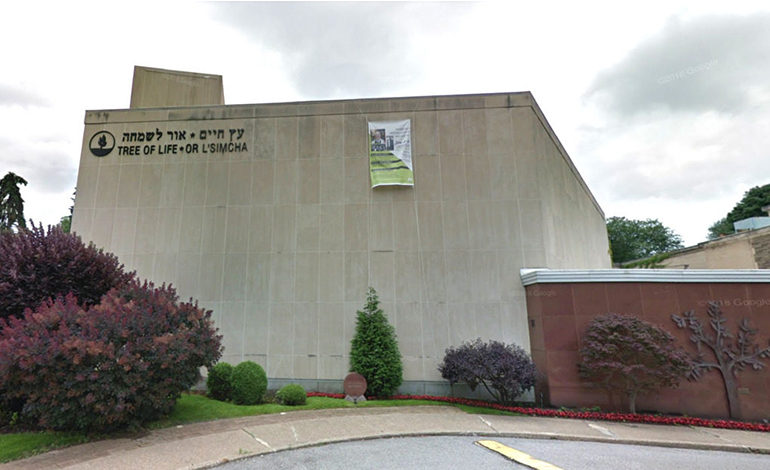Saturday was to be a day of celebration at the Tree of Life synagogue in Pittsburgh’s Squirrel Hill Neighborhood. According to the Pittsburgh Jewish Chronicle, a baby boy was to be welcomed into the covenant of Abraham.
Tradition holds that the night before a baby boy’s ritual circumcision, members of the community study and recite special prayers next to the baby to protect him from evil beings. At the circumcision, the presence of Elijah and his chair symbolize the prophet’s role as the protector of little children.
But in a moment, a heavily armed madman infused with anti-Semitic ideology, reinforced by a similarly warped community of online haters and fueled by our toxic political environment — including the divisive 95-octane rhetoric of the president of the United States — massacred 11 worshipers and wounded six others, including four brave first responders.
The peace, the blessing, the hope, the special joy of this Sabbath day had been shattered, along with any illusions about the safety and security of our community. All of the study, prayers and the mythical presence of Elijah would not offset the evil that is now the largest mass murder of Jews — because they were Jews — in America.
Whether Pittsburgh or Charleston, South Carolina; Overland Park, Kansas; Sutherland Springs, Texas or Oak Creek, Wisconsin, all communities of faith marginalized by White supremacist ideology are potential targets. Many in the Detroit metro area recall that for a 30-year period, the epicenter of Ku Klux Klan (KKK) activity in Michigan was the farm of Grand Dragon Robert Miles — only 40 minutes away from the heart of our Jewish community.
During this period of intense grief, we first and foremost mourn the loss of life and extend appreciation to those who are trained to run toward trouble, who provide support and offer acts of kindness.
Our own feelings of vulnerability are deep and understandable. We want to be safe and secure in America, in our Jewish schools, synagogues and community centers, at community-wide events and yes, intimate family settings. More guards. More good people with guns. More bullet-proof glass. More metal detectors. Thicker doors and heavier locks. Anyone who has visited synagogues or Jewish institutions in places like Rome, Florence, Paris, London or Buenos Aires knows what this looks like.
But how much of that do we need or want here?
Just as we celebrate continuity by welcoming a baby boy into the covenant of Abraham, we were also reminded in this past week’s Torah portion about the tent of Abraham and Sarah — open on all four sides to welcome guests. Abraham’s legendary hospitality was proactive, as he would often pursue sojourners — perfect strangers — to visit.
In the coming weeks and months, we as a Jewish community must wisely assess our security needs. But in doing so, we must guard against closing our tent — becoming isolated and insulated from our neighbors. We need to be vigilant while also cherishing our freedoms. We need to take care of our Jewish communal needs while also helping others who face their own daily battles with senseless hatred and cruel stereotyping.
Just like Abraham, we must continue to actively reach out and engage with the world round us. Even during these trying times, it is at the core of our peoplehood.
- This article first appeared in the Detroit Jewish News, a partner newspaper in New Michigan Media.






Leave a Reply